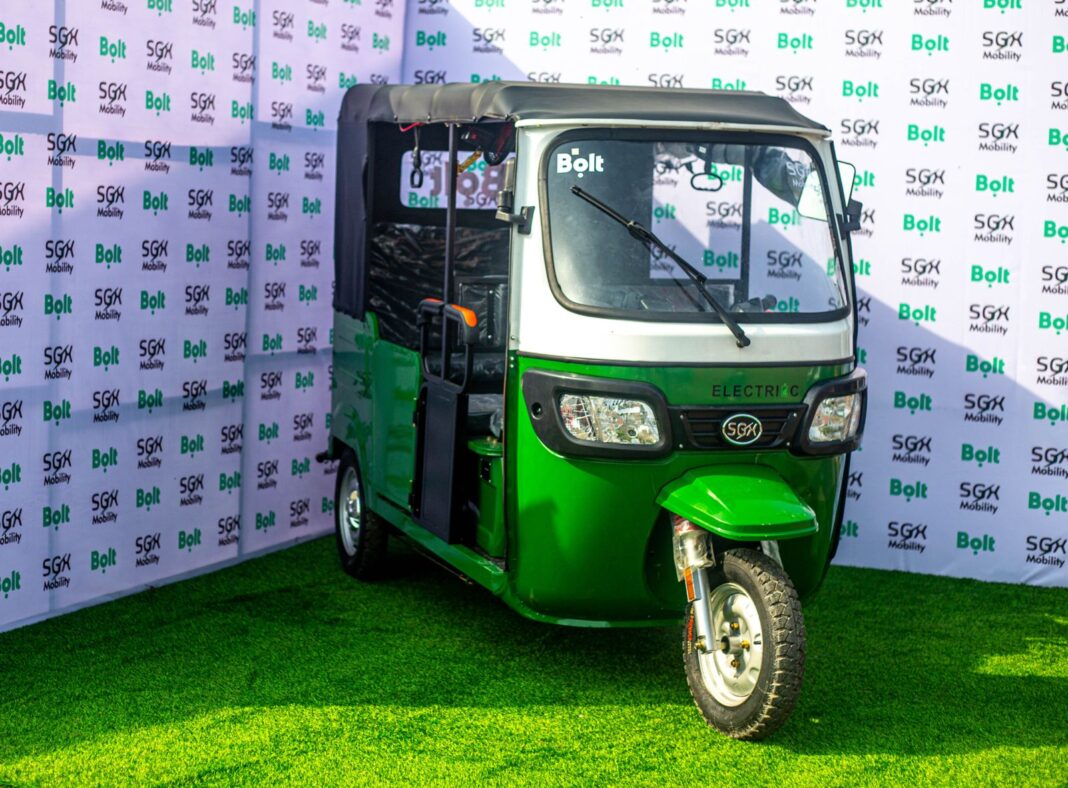Ride-hailing platform Bolt has launched electric tricycles (keke) in Lagos, marking its first foray into electric three-wheelers in Nigeria as part of its broader EV expansion across West Africa. The company is introducing 25 electric tricycles in partnership with SGX Mobility, a Lagos-based electric mobility firm.
Already operating traditional tricycles in Jos and Uyo, Bolt will now offer Lagos riders an electric tricycle option within its app starting in May.


Each electric tricycle costs ₦3.2 million ($1,996). Drivers are required to make a ₦208,000 ($130) down payment and can finance the remainder over 18 to 24 months, with lease payments set at ₦32,000 weekly or ₦156,000 monthly. Battery swaps cost approximately ₦6,500 daily, nearly 50% cheaper than petrol fueling.
“This launch is about more than just vehicles—it’s about building an ecosystem,” said Caroline Wanjihla, Bolt Africa’s spokesperson. “Drivers benefit from lower operating costs and a clear path to vehicle ownership within two years.”
Unlike other lease-to-own models such as Moove and LagRide, which have faced criticism over high default rates and rigid terms, Bolt’s approach offers lower entry costs, fixed payments, and a reduced commission rate of 15%—down from the 25% typically charged on vehicles.


According to Zankyang Duniya, Bolt’s Operations Manager, “These tricycles are more affordable, and the flexible payment structure makes them a better fit for everyday drivers.”
Each EV tricycle can reach speeds of up to 80km/h and run for up to 12 hours on a full charge. Drivers will use a battery swap system, with the first station set up at Eagle Square, Surulere, to minimize downtime and keep daily earnings consistent.
The rollout comes amid growing interest in alternatives to petrol-powered tricycles due to rising fuel costs. While some drivers have switched to compressed natural gas (CNG), limited infrastructure and high conversion costs remain obstacles. Bolt’s EV model offers a cleaner, more cost-effective solution with zero emissions and the promise of ownership.

Bolt says it’s watching the response closely. If the pilot succeeds, the company plans to scale the model to other Nigerian cities and extend to Ghana, Uganda, Tanzania, and Tunisia.
“Lagos may be congested,” the company notes, “but with the right economics and infrastructure, it’s ripe for an EV revolution.”




